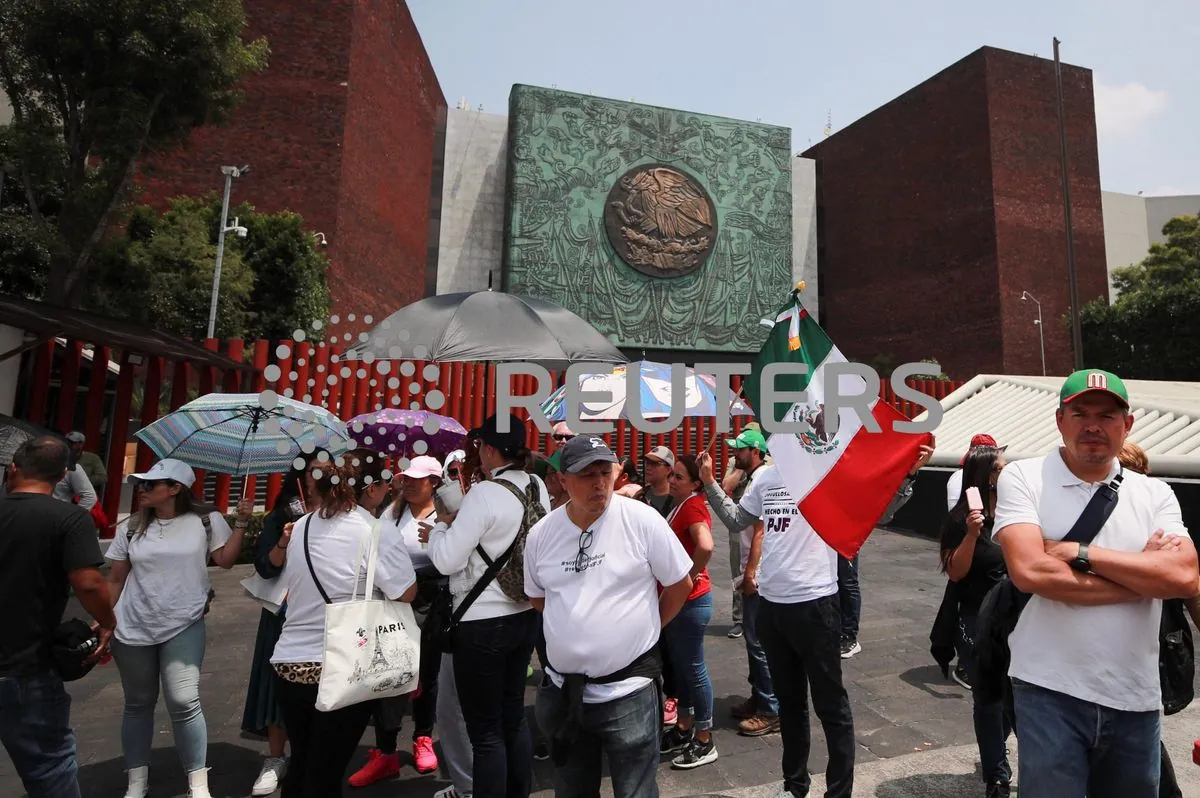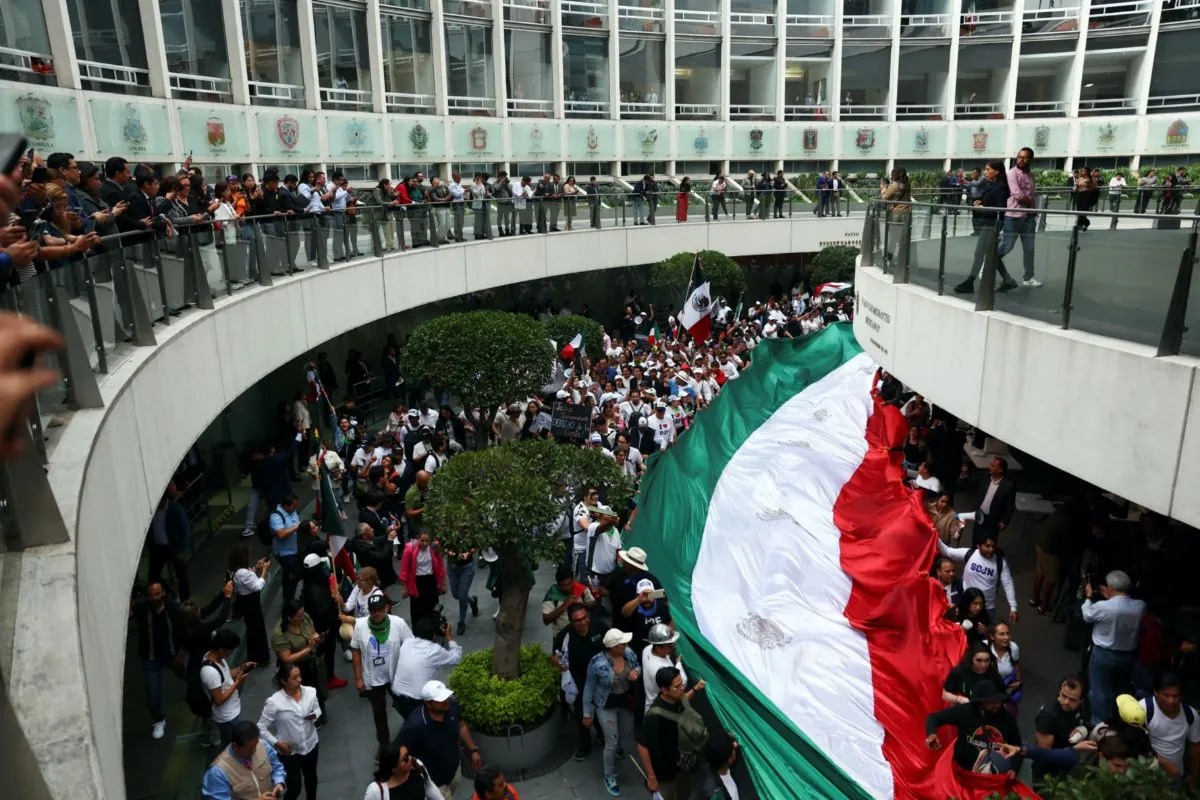Mexico's Judicial Overhaul: A Controversial Step Towards 'True Democracy'?
Mexico's President signs controversial judicial reforms, sparking debate on democracy and judicial independence. The plan to elect judges faces criticism for potential risks to democratic institutions and economic stability.

In a significant move that has sparked intense debate, Andrés Manuel López Obrador, Mexico's President, has signed into law a series of constitutional amendments aimed at overhauling the country's judicial system. The centerpiece of these reforms is the proposal to elect all judges, including those on Mexico's Supreme Court, by popular vote.
This decision has ignited a firestorm of controversy, with 55,000 judicial employees going on strike to oppose the changes. The day before the Senate's approval on September 11, 2024, protesters stormed the legislative chambers, bringing deliberations to an abrupt halt.
The reforms, known as "Plan C," were a key component of the election platform that secured victory for López Obrador's party, Morena, in the June 2024 presidential and legislative elections. In addition to introducing popular elections for judges, the amendments reduce the number of Supreme Court justices from 11 to nine and create a popularly elected disciplinary tribunal with broad powers to punish judges.

Proponents of the reforms, including President-elect Claudia Sheinbaum, argue that these changes will create a "true democracy." However, critics, including the Mexican Bar Association and scholars from Stanford Law School, warn that the amendments pose a grave threat to judicial independence.
The controversy surrounding these reforms highlights the complex nature of Mexico's legal system, which has been influenced by both Spanish civil law and U.S. constitutional law. Established in 1824, Mexico's Supreme Court has played a crucial role in the country's legal framework, operating within the civil law system that distinguishes it from the common law system of its northern neighbor.
While the concept of electing judges is not unprecedented – in the United States, 87% of state appellate and trial court judges face voters at some point – the specific design of Mexico's proposed judicial elections raises concerns. Critics argue that the reforms could overwhelm voters with elections for nearly 7,000 judges, potentially leading to low turnout and uninformed choices.
Moreover, the amendments allow for up to nine candidates for each judicial seat, meaning the Supreme Court election alone could have up to 81 candidates. This abundance of choices, coupled with the National Electoral Institute's reduced budget, raises questions about the feasibility and effectiveness of organizing thousands of new elections starting next year.
"If judges … are elected by the people, where is the authoritarianism?"
Another point of contention is the potential for the ruling Morena party to consolidate power through these reforms. With all nine Supreme Court judges set to be elected in a single election in June 2025, there are concerns that Morena could secure a lasting supermajority on the highest court, potentially eroding checks on executive power.
The economic implications of these reforms are also significant. As the 15th largest economy in the world by nominal GDP, Mexico's stability is crucial for both domestic and international investors. The peso, the oldest currency in North America, has already seen a sharp decline in value since the June elections, reflecting market uncertainty about the country's future direction.
As Mexico navigates this controversial judicial overhaul, the world watches closely. With free trade agreements with over 50 countries and a population of approximately 130 million, the outcome of these reforms could have far-reaching consequences for both Mexico's democracy and its economic future.


































